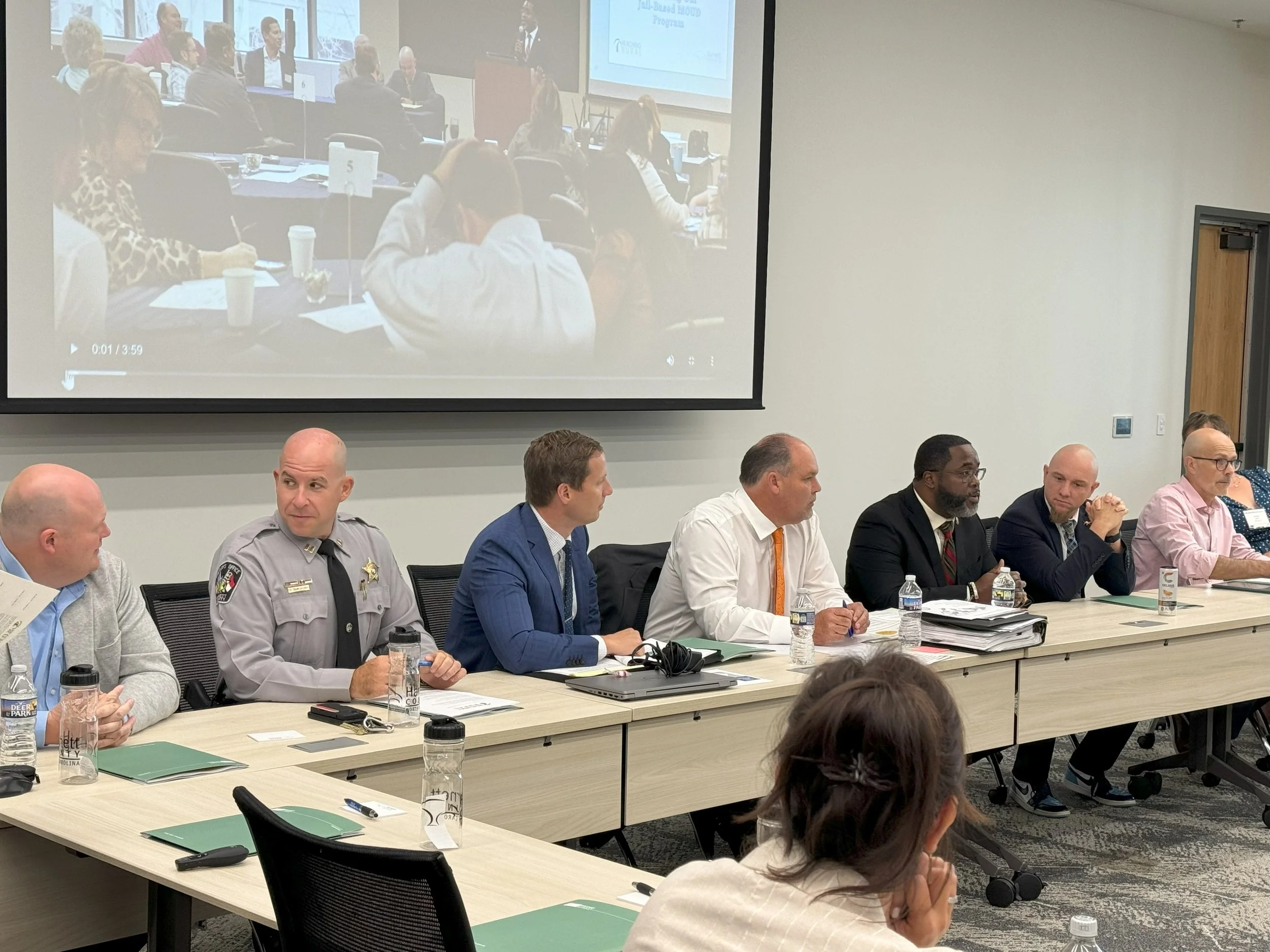Resources for Rural Communities
Use the filters below to search by resource topic, type, and audience.
Integrating Mental Health Support into Rural Libraries
This evaluation and report provide findings from an initiative integrating nonclinical adult mental health supports into rural libraries. The report is intended for community members and leaders interested in implementing nonclinical mental health support within libraries or other community spaces to expand the mental health workforce. A related toolkit offers guidance for librarians on identifying and initiating mental health supports within libraries to assist patrons with their mental well-being.
First Responder Substance Use Stigma Measures Toolkit
Toolkit for assessing first responders attitudes and stigma toward people with opioid use disorder, validated for law enforcement, EMS, and fire personnel.
Community Opioid Overdose Reversal Medications (OORMs) Planning Toolkit
Toolkit for expanding access to naloxone and other overdose reversal medications, providing guidance for communities to develop effective prevention and response strategies.
Teens Linked to Care: Supporting Rural Youth
Teens Linked to Care (TLC) program developed and evaluated prevention strategies for substance use and sexual risk among high-risk rural youth, with a toolkit for schools.
From Settlement to Solutions: Resources for Evidence-Based Opioid Settlement Fund Use Based on Community Conversations: A North Carolina Case Study
Resource hub offers best practices, policies, trackers, and tools for effective use of opioid settlement funds, including naloxone calculators and assessment toolkits.
Vera Incarceration Trends
The Vera Institute of Justice Incarceration Trends website includes more than five decades of local jail and state prison data at the national, state, and county levels.
Returning to the Community: Health Care After Incarceration
The US Department of Justice (DOJ) and the Centers for Medicare & Medicaid Services (CMS) released a guide to help people reentering communities after incarceration connect to health coverage and services, supporting reentry and health.
Incorporating Peer Recovery Support into Treatment Courts: Practice Guidelines for Treatment Court Professionals
Guidelines for integrating peer recovery support into treatment courts, including adult, DWI, opioid, veterans, and co-occurring courts, with rural considerations.
Planning Principles Toolkit
The Principles for the Use of Funds From the Opioid Litigation are nationally recognized guidance for states, counties and cities receiving money from the lawsuits against entities that contributed to the opioid epidemic. Coordinated by faculty at the Johns Hopkins Bloomberg School of Public Health (Johns Hopkins), the Principles are designed to help governments of all levels lay the foundation to effectively invest opioid settlement funds to save lives from overdose.
Primer On Spending Funds from The Opioid Litigation: A Guide for State and Local Decision Makers
Want to know how jurisdictions should prioritize programs for funding from the opioid litigation? This Primer on Spending Funds from the Opioid Litigation provides background information on each of the nine core abatement strategies including considerations for funding and implementation.
A Guide to Funding Resources: The Rural Information Center
The “Funding Resources” section of A Guide to Funding Resources includes links to searchable databases offering funding opportunities from government and/or private sources available to local governments, community organizations, and individuals. It provides links to full text online guides and tips to assist grant writers prepare successful proposals. The reader may locate links to additional funding programs and information on the Rural Information Center (RIC) website.
Evidence-Based Crime Reduction Strategies for Small, Rural, and Tribal Agencies
This guide provides evidence-based policing practices (EBPP) for small, rural, and tribal agencies. The information comes from published research studies and working group conversations with command staff from various small, rural, and tribal agencies
Resource Guide for Rural Workforce Development
This guide was created for community leaders and other local entities to help them access resources to create jobs, train talent, expand educational opportunities and provide technical assistance. The guide outlines programs and services available at USDA and other federal departments and agencies that support workforce development in rural communities. Included is a rural workforce resource guide matrix and a comprehensive list of other federal and federally supported programs, including the Reentry Employment Opportunities (REO) program.
Federal Resources for Rural Communities to Help Address Substance Use Disorder and Opioid Misuse
ONDCP has identified 26 overarching categories to organize this resource guide and help users identify potential sources of assistance for issues they find most challenging. This list is not exhaustive: many of the programs and resources listed in these pages cover a much broader range of potential uses.















